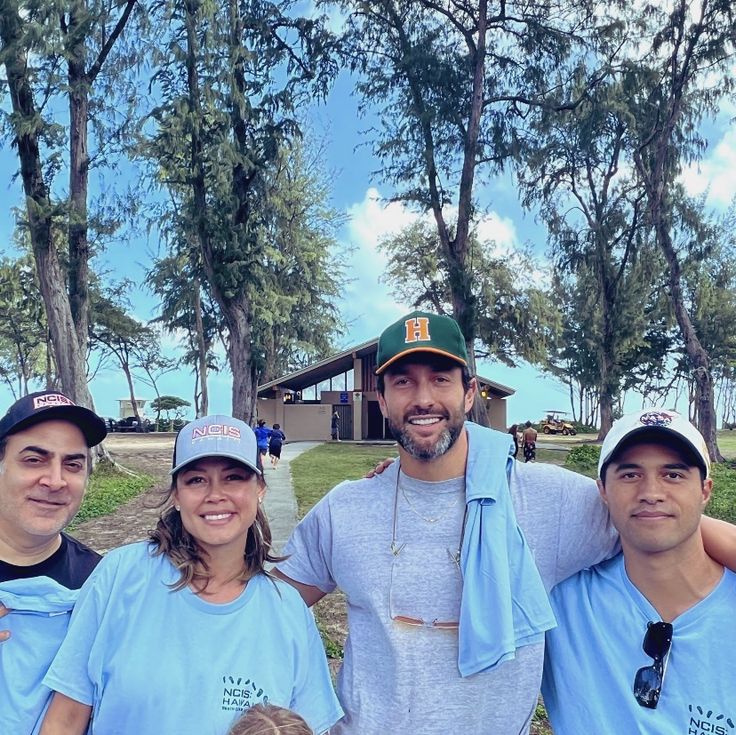
Reaching 1000 episodes in television is no small feat. In fact, it’s the kind of milestone that only the strongest franchises achieve. And when it comes to NCIS, this powerhouse drama didn’t just stumble into greatness—it thrived because of its unforgettable characters, talented cast, and yes, the sheer magic of its spin-offs like NCIS: Hawai’i.
But what exactly makes an NCIS team stand out? Let’s break down why the Hawai’i edition played such a crucial role in hitting that legendary milestone.
The Legacy of NCIS: A Franchise Like No Other
When NCIS first aired in 2003, few expected it to become a cultural juggernaut. Fast forward two decades, and the franchise has exploded into multiple spin-offs: NCIS: Los Angeles, NCIS: New Orleans, and of course, NCIS: Hawai’i.
But it wasn’t just luck. The key ingredient? Casting teams that feel like family while tackling the kind of gripping cases that keep fans on the edge of their seats.
Why 1000 Episodes Is Such a Big Deal
Think about it: Most TV shows struggle to hit even 100 episodes. That’s usually the point where networks decide whether to continue. But 1000? That’s elite territory. It’s not just about ratings—it’s about loyalty, storytelling, and building a world fans refuse to leave.
NCIS: Hawai’i and Its Special Touch
So, what’s Hawai’i’s contribution to this incredible milestone? Simple: It brought a fresh perspective while honoring the legacy of the original. By weaving local culture, breathtaking backdrops, and dynamic characters into the mix, NCIS: Hawai’i proved it wasn’t just another spin-off.
Vanessa Lachey: A Historic Lead
Vanessa Lachey made history as the first female lead of an NCIS series. Her portrayal of Special Agent Jane Tennant brought strength, intelligence, and heart to the team. Fans quickly connected with her no-nonsense approach and her balance between leadership and family life.
The Supporting Cast That Shines
From Alex Tarrant as Kai Holman to Noah Mills as Jesse Boone, every character adds depth to the story. It’s the mix of personalities—sharp, witty, compassionate—that makes the Hawai’i team stand out.
What Sets the Hawai’i Team Apart
Not every spin-off makes an impact. But NCIS: Hawai’i did because it leaned into what made Hawai’i unique:
-
Cultural authenticity — Integrating local traditions and values.
-
Team dynamics — Characters that actually feel like ohana (family).
-
High-stakes cases — Balancing military, federal, and local crime investigations.
The Recipe for NCIS Success
If we boiled down the success formula, it would look something like this:
Great storytelling + Believable characters + Evolving cases + Unbreakable team chemistry = 1000 episodes
Sound simple? It’s anything but. Each ingredient has to work seamlessly, and that’s where Hawai’i excelled.
Milestones That Defined the Journey
-
Episode 1 — A bold start that introduced us to Jane Tennant’s fearless leadership.
-
Crossovers — Special team-ups with other NCIS branches, building hype and unity across the franchise.
-
Cultural highlights — Showcasing Hawai’i beyond just its scenery, digging into real issues and traditions.
Fans Kept Coming Back—Here’s Why
Ask any NCIS fan and they’ll tell you: it’s not just about solving crimes. It’s about connection. The relationships—between teammates, families, and communities—keep viewers emotionally invested.
The Power of Ohana in Storytelling
The word ohana means family, and in NCIS: Hawai’i, it wasn’t just a slogan. It was a theme that carried through every storyline. That bond gave weight to victories, losses, and the everyday struggles of the characters.
Celebrating 1000 Episodes: A Cultural Moment
When NCIS hit 1000 episodes, it wasn’t just a TV milestone—it was a celebration of pop culture history. Few shows can claim that kind of longevity, and it proved that fans still crave strong characters and compelling storytelling.
How Hawai’i Cemented Its Place in NCIS History
While the original NCIS laid the foundation, Hawai’i ensured the franchise stayed fresh. By tackling unique cases and breaking barriers with its casting, it helped NCIS remain relevant in a competitive TV landscape.
Behind the Scenes: Dedication of the Cast and Crew
We can’t forget the real heroes—the writers, producers, and crew members who pour their energy into making every scene feel authentic. Without them, 1000 episodes wouldn’t even be possible.
What’s Next for NCIS After 1000?
The big question: Where does the franchise go from here? If history is any guide, the answer is forward. With a global fanbase and a formula that works, NCIS shows no signs of slowing down.

Conclusion
Reaching 1000 episodes is proof that NCIS isn’t just a TV show—it’s a legacy. And NCIS: Hawai’i played a massive role in keeping that legacy alive. From groundbreaking representation to unforgettable team chemistry, it reminded fans why they fell in love with the franchise in the first place.
So, the next time you watch Jane Tennant and her team in action, remember: you don’t get to 1000 episodes without an all-star crew.
FAQs
1. Why is NCIS: Hawai’i important to the franchise?
Because it introduced fresh perspectives, diverse representation, and new storytelling angles while staying true to the NCIS legacy.
2. Who was the first female lead in the NCIS franchise?
Vanessa Lachey, who played Special Agent Jane Tennant in NCIS: Hawai’i.
3. How many episodes does the NCIS franchise have in total?
The franchise recently celebrated its 1000th episode across all its series combined.
4. What makes NCIS: Hawai’i unique compared to other spin-offs?
Its integration of Hawaiian culture, breathtaking scenery, and its theme of ohana (family).
5. Will NCIS continue after 1000 episodes?
Yes, the franchise shows no signs of stopping, with new stories and crossovers still in development.
